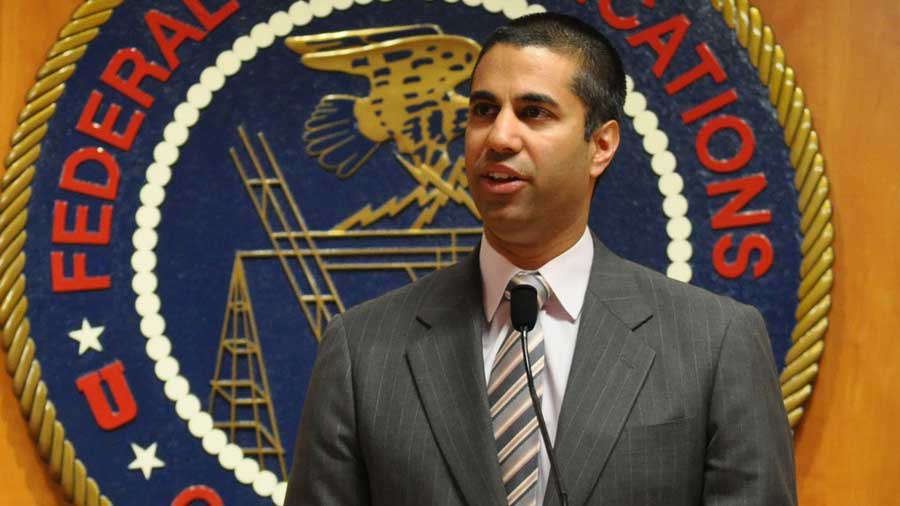FCC's Pai: Free Speech Is Under Siege

The smarter way to stay on top of broadcasting and cable industry. Sign up below
You are now subscribed
Your newsletter sign-up was successful
FCC Chairman Ajit Pai says a "shared cultural commitment" to free speech is vital, but that he worries that commitment might be "beginning to unravel" due to pressures to stifle speech perceived to be unpopular or offensive."
He cited calls to the FCC to pull the licenses of Fox News or CNN or MSNBC "because of opinions expressed on those networks." While the FCC doesn't license cable channels, he pointed out, "those calls are fundamentally at odds with our legal and cultural traditions," he said.
That warning—the chairman said that free speech appears to be "under siege"—was delivered in a speech Friday, Sept. 15 at a symposium on "the Future of Online Speech."
He cited, for one, a recent study by the University of Pennsylvania that found less than half the respondents (48%) knew free speech was a constitutionally guaranteed right. Then there was the Pew study that found that 40% of millennials believed the government should be able to bar some offensive statements.
Pai said one hopeful sign was access to online speech, which he called "vital for free speech and political engagement." He said the internet has given people an unprecedented platform for their voices to be heard.
"With the internet, any American can be both speaker and publisher," he said. " Any American can build an audience well beyond one’s physical proximity. And any American can even make news—from Periscope coverage of a terrorist attack to viral sensations like Chris Crocker, who a decade ago this week made national headlines with his passionate defense of Britney Spears."
The chairman has been accused of giving ISPs the power to censor speech by reclassifying them as non-common carriers no longer subject to mandatory access provisions. But Pai did not get into that thorny issue, choosing instead to focus on the opportunities of access, including for a certain New York developer and former reality TV star.
"Obviously, the internet has also transformed elections," Pai said. "The President’s primary platform for getting his message out directly to the people was—and still is—Twitter. And the internet has also democratized political fundraising. Just ask Bernie Sanders, who raised $218 million online, $27 on average at a time."
The explosion of online speech and the ease of self-publishing has a downside, including providing a digital megaphone for hate speech. But the chairman says on balance the 'net is a positive force in the life of public discourse.
"Obviously, digital media and the explosion of online expression has created new challenges, many of which you’ve discussed today," he said. "But in my view, the positives outweigh the negatives. The internet has democratized our political discourse. It has invigorated political debate. And in my view, it can help sustain our shared cultural commitment to free expression."
The smarter way to stay on top of broadcasting and cable industry. Sign up below
Contributing editor John Eggerton has been an editor and/or writer on media regulation, legislation and policy for over four decades, including covering the FCC, FTC, Congress, the major media trade associations, and the federal courts. In addition to Multichannel News and Broadcasting + Cable, his work has appeared in Radio World, TV Technology, TV Fax, This Week in Consumer Electronics, Variety and the Encyclopedia Britannica.

